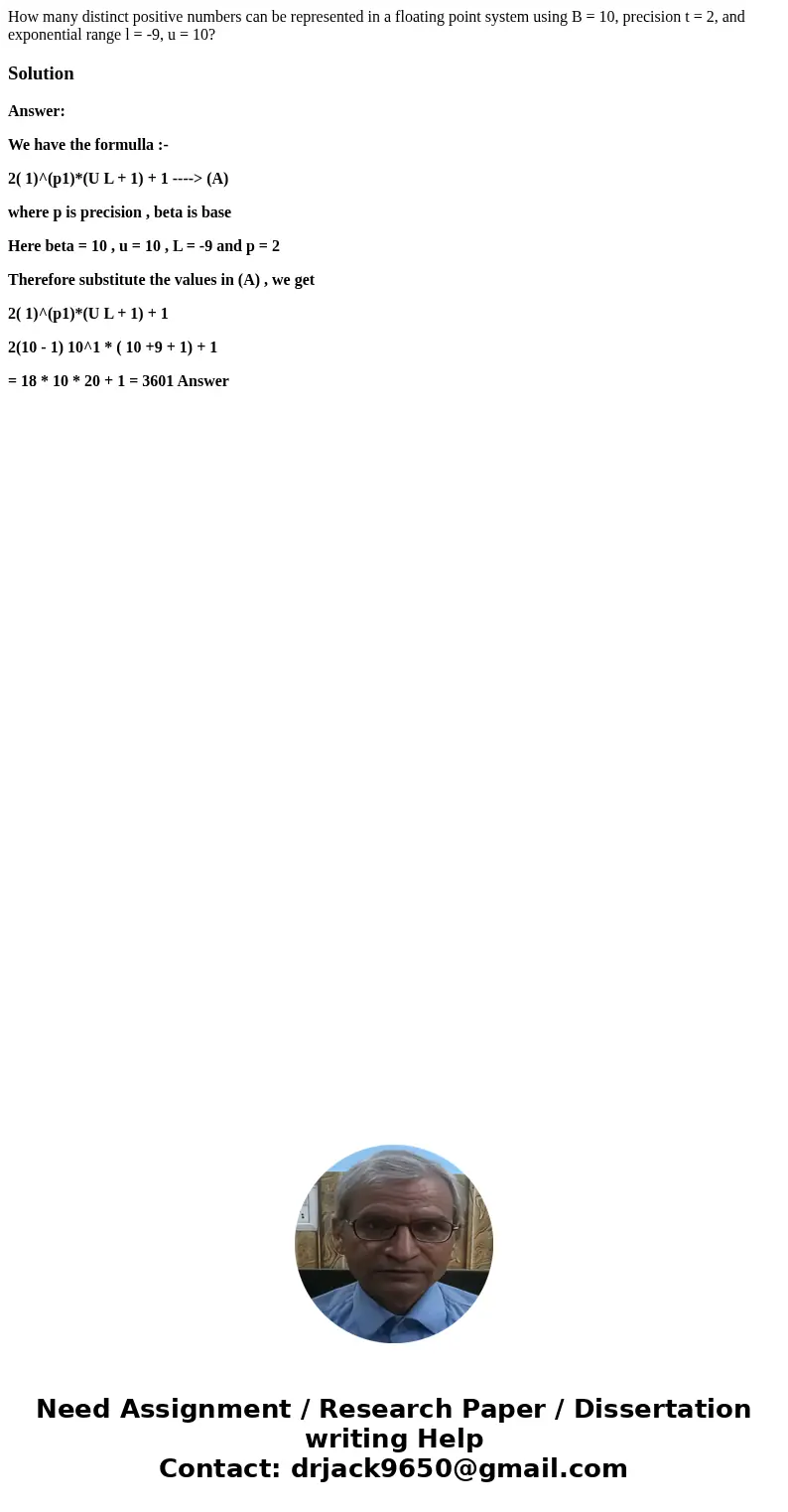How many distinct positive numbers can be represented in a f
How many distinct positive numbers can be represented in a floating point system using B = 10, precision t = 2, and exponential range l = -9, u = 10?
Solution
Answer:
We have the formulla :-
2( 1)^(p1)*(U L + 1) + 1 ----> (A)
where p is precision , beta is base
Here beta = 10 , u = 10 , L = -9 and p = 2
Therefore substitute the values in (A) , we get
2( 1)^(p1)*(U L + 1) + 1
2(10 - 1) 10^1 * ( 10 +9 + 1) + 1
= 18 * 10 * 20 + 1 = 3601 Answer

 Homework Sourse
Homework Sourse